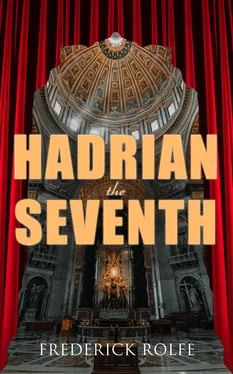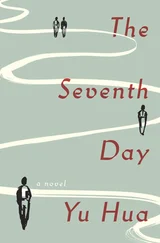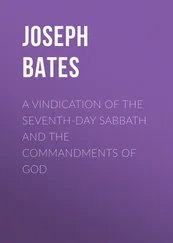"Yes! It pays to be good— just simple goodness pays. I know, oh I know. I always knew it.
"God, if ever You loved me, hear me, hear me. De profundis ad Te, ad Te clamavi. Don't I want to be good and clean and happy? What desire have I cherished since my boyhood save to serve in the number of Your mystics? What but that have I asked of You Who made me?
"Not a chance do You give me— ever— ever— .
"Listen! How can I serve You? How be happy, clean, or good, while You keep me so sequestered?
"Oh I know of that psalm where it is written that You set apart for Yourself the godly. Am I godly? Ah no: nor even goodly. I'm Your prisoner writhing in my fetters, fettered, impotent, utterly unhappy.
"Only he, who is good and clean, is happy. I am clean, God, but neither good nor happy. Not alone can a man be good or happy. Force, which generates no one thing, is not force. All intelligence must be active, potent. I'm intelligent. So, O God, You made me. Therefore I must be active. Of my nature I must act. For the chance to act, I languish. I am impotent and inactive always. He, who wishes to be good, strives to do good. Deeds must be done to others by the doer. Therefore I, in my loneliness, am futile. Friends? And which of them have You left me faithful these twelve years of my solitude, God? Not one. Andrews, faithless; and Aubrey, faithless; Brander, faithless; Lancaster, faithless; Strages, faithless and perfidious; Scuttle also; Fareham, Roole, and Nicholas, faithless; Tatham, faithless; that detestable and deceitful Blackcote who came fawning upon me crying 'Courage! You shall suffer no more as you have suffered!' and then robbed me of months and years of labour. Ah! and Lawrence, my little Lawrence, faithless.
"Women? What do I know of women. Nothing.
"Fiat justitia— well, there's Caerleon. But a bishop is very far above me; and his friendship is only condescension,— honest, genial, kind, but— condescension. Still, he wishes me well. I truly think it. But if only he would believe me, trust me, shew faith in me, and absolutely trust me,— I might do what the mouse did for the lion.
"Strong? But why do I name my splendid master. Strong of nature and Strong of name and station, Strong of body and Strong of mind, immensely my superior altogether, knowing all my weakness and all my imperfection: who, to me, is as much like You as any man can be! It is only grand indulgence and urbanity on his part which make him know me; and, when the sun lacks splendour, only then will Megaloprepes need me, only then Kalos Kagathos perchance may need me.
"Why, O God, have You made me strange, uncommon, such a mystery to my fellow-creatures, not a 'man among men' like other people?
"Do I want to appear like other people?
"No, no, certainly not: but— Lord God, am I such a ruffian as to merit exile?
"Oh of course I'm a sinner, vile and shameful. But, God, look at the wreck which You have let them make of me and my life. You have some purpose in it all. Oh you must have, if You are, God; and I know that You are. O God, I thank You.
"But look,— haven't I tried and toiled and suffered? Yet You never allow me any satisfaction, any gain or reward for all my trouble. No: but You always let some shameless brigand rob me, snatching the fair fruit of my labours.
"Yes: I know how I dream of certain pleasures, certain luxuries, cleanness, whiteness, freshness, and simplicity, and the life of quiet healthful vigorous and serene well-doing, all in secret, and all unostentatious, which, when once I achieve success, I will have. I know all about that. But You know also I that never should use success in that way, if You gave it to me. Now did I ever use success for myself and not for others? No: I couldn't endure the eternal silent wistful vision of Your Maiden-Mother.
"You know why I want freedom, power, and money— just to make a few people happy, just to put things right a bit, just to make things easy, just to straighten out tangled lives whose tangles make me rage because I myself am helpless. Is that wrong? No— I swear my aim is single and unselfish. I don't want credit even. You well know that You made me all-denuded of the power of loving anybody, of the power of being loved by any Self-contained, You have made me. I shall always be detached and apart from others.
"Murmur? No. I never have murmured— nor will murmur.
"Truly, though, I should like to love, to be loved: but, so long I have been alone and lonely, I suppose I must go on like that always till the end. They are frightened of me, even when they come to the very verge of loving. They are frightened because of certain labels which I frequently use to put on others: frightened lest I should fit them also some day with a label. Oh, often they have told me that they wouldn't like me to be against them.
"I will stop that, O God, if You desire it. But, instead of it, what? I think You mean me not to waste the one talent You have given. Then, I beg of You, give me scope. I must act.
"No: I am not doing well at present— not my best. Oh, I know it, and I loathe it. All my life is a pose. Somehow or other I have taken the pose, or stolid stupids force me into the pose, of strange recondite haughty genius, very stubtile, very learned, inaccessible,— everything that's foolish. God, You know what a sham I am: how silly this is: how very little I know really. Don't I know it too? Don't I always tell them? Then they say that I'm modest— me— ha!— modest!
Here's the truth, by my One Hope of Salvation. I am frightened of all men, known and unknown; and of women I go into violent terror: though I always do say superb and hard things to the one, and all pretty gentle soft things to the other, while writing pitilessly of them both:— for I'm frightened of them, frightened; and I want to avoid them; and to keep them off me. Therefore I pose. And, therefore also, I provide an image which they can worship, like, or loathe, as it pleases, or displeases, or strikes awe— and they generally loathe it. All the time, while they manifest their feelings, I look on like a child at Punch and Judy.
"Oh, it's wrong, very wrong, wrong altogether. But what can I do? God, tell me, clearly unmistakeably and distinctly tell me, tell me what I must do— and make me do it."
He got out of bed: took his rosary from his trousers' pocket; and returned. During the fifth meditation on the Finding of The Lord in the Temple, he fell asleep.
"Dr. Courtleigh and Dr. Talacryn?" he repeated as a query, in the tone of one to whom Beelzebub and the Archangel Periel have been announced at eleven o'clock on the morning of a working day.
"Yes," the maid replied. "Clergymen. One is that bishop who came before."
"The bishop who came before! And— — What's the other like?"
"Oh, quite old and feeble— rather stoutish— but he's been a fine handsome man in his day. He wears a red neck-tie under his collar."
"Well— I— am!... Thanks. I'll be down in a minute."
George put his writing-board away and brushed the front of his blue linen jacket, mentally and corporeally pulling himself together.
"Flavio, I should just like to know the meaning of this. I rather wish that I had Iulo here to back me up. If they are meditating mischief, an athletic and quarrelsome youngster, with an eye like a basilisk and a mouth full of torrential English, would be an excellent trump to play. Mischief? What nonsense! Don't you give way to your nerves, man. Respectable epistatai do not habitually engage in mischief, as you are well aware. You have nothing to fear: so put on a mask— the superior one with a tinge of disdain in it— and brace yourself up to resist the devil; and go downstairs at once to see him flee."
The two visitors were in the dining-room, a confined drab and aniline room rather over-filled with indistinct but useful furniture. When George entered, they stood up— grave important men, of over forty and seventy years respectively, dark-haired and robust, white-haired and of picturesque and supercilious mien. George went straight to the younger prelate: kneeled; and kissed the episcopal ring.
Читать дальше











